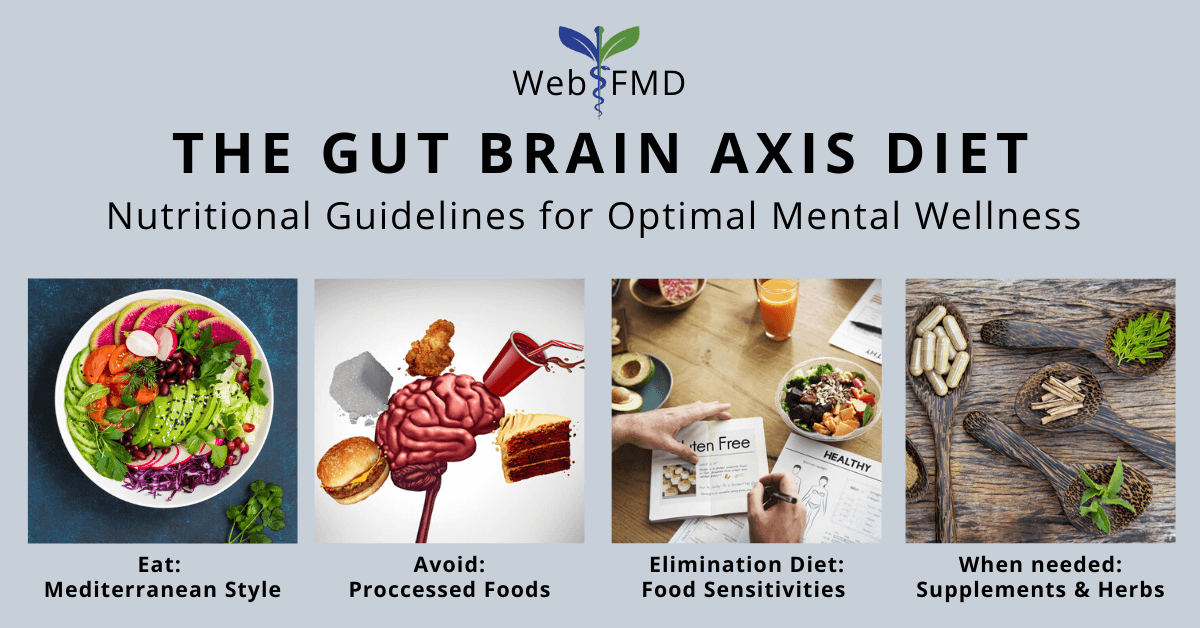In recent years, there has been a growing body of research highlighting the importance of the gut-brain connection. This intricate relationship between our gut and brain plays a crucial role in both our mental and physical health. One of the key factors that influences this connection is diet.
The Microbiome: Your Gut’s Ecosystem
Our gut is home to trillions of bacteria, fungi, and other microorganisms that make up our gut microbiome. These microorganisms play a vital role in maintaining our overall health, including our immune system and digestive function. However, they also play a significant role in our mental health.
Research has shown that the composition of our gut microbiome can influence our mood, behavior, and even our cognitive function. A diet high in processed foods, sugar, and unhealthy fats can disrupt the balance of our gut microbiome, leading to inflammation and a host of health issues, including depression, anxiety, and even neurodegenerative diseases.
The Impact of Diet on Mental Health
When it comes to mental health, the old adage “you are what you eat” rings true. A diet high in processed foods and sugar can lead to imbalances in neurotransmitters, such as serotonin and dopamine, which play a crucial role in regulating our mood and emotions. On the flip side, a diet rich in fruits, vegetables, whole grains, and lean proteins can support optimal brain function and mental well-being.
Studies have also shown that certain nutrients, such as omega-3 fatty acids found in fatty fish, and antioxidants found in fruits and vegetables, can help protect against mental health disorders and cognitive decline. These nutrients help reduce inflammation in the brain and support the growth of new brain cells, leading to improved mental clarity and overall well-being.
The Gut-Brain Axis: A Two-Way Street
The gut-brain connection is a two-way street, with communication flowing in both directions. Signals from the gut can influence our brain function, mood, and behavior, while signals from the brain can impact the health and function of our gut microbiome. This bidirectional communication highlights the importance of maintaining a healthy diet to support both our mental and physical health.
Tips for Supporting a Healthy Gut-Brain Connection
To support a healthy gut-brain connection, it is essential to focus on a diet rich in whole, nutrient-dense foods. Here are some tips to help you optimize your diet for better mental and physical health:
Include plenty of fruits and vegetables in your diet to provide essential vitamins, minerals, and antioxidants.
Choose whole grains, such as quinoa, brown rice, and oats, over refined grains to provide fiber for your gut microbiome.
Include sources of lean protein, such as poultry, fish, tofu, and legumes, to support brain function and mental clarity.
Limit processed foods, sugar, and unhealthy fats, which can disrupt the balance of your gut microbiome and impact your mental health.
Stay hydrated by drinking plenty of water throughout the day to support digestion and overall health.
Consider taking a high-quality probiotic supplement to support the balance of beneficial bacteria in your gut microbiome.
Conclusion
The gut-brain connection is a complex and fascinating aspect of our overall health. By paying attention to our diet and making choices that support a healthy gut microbiome, we can improve our mental and physical well-being. Remember, what you eat not only affects your waistline but also your mood, cognition, and overall quality of life.
Take care of your gut, and your brain will thank you!
